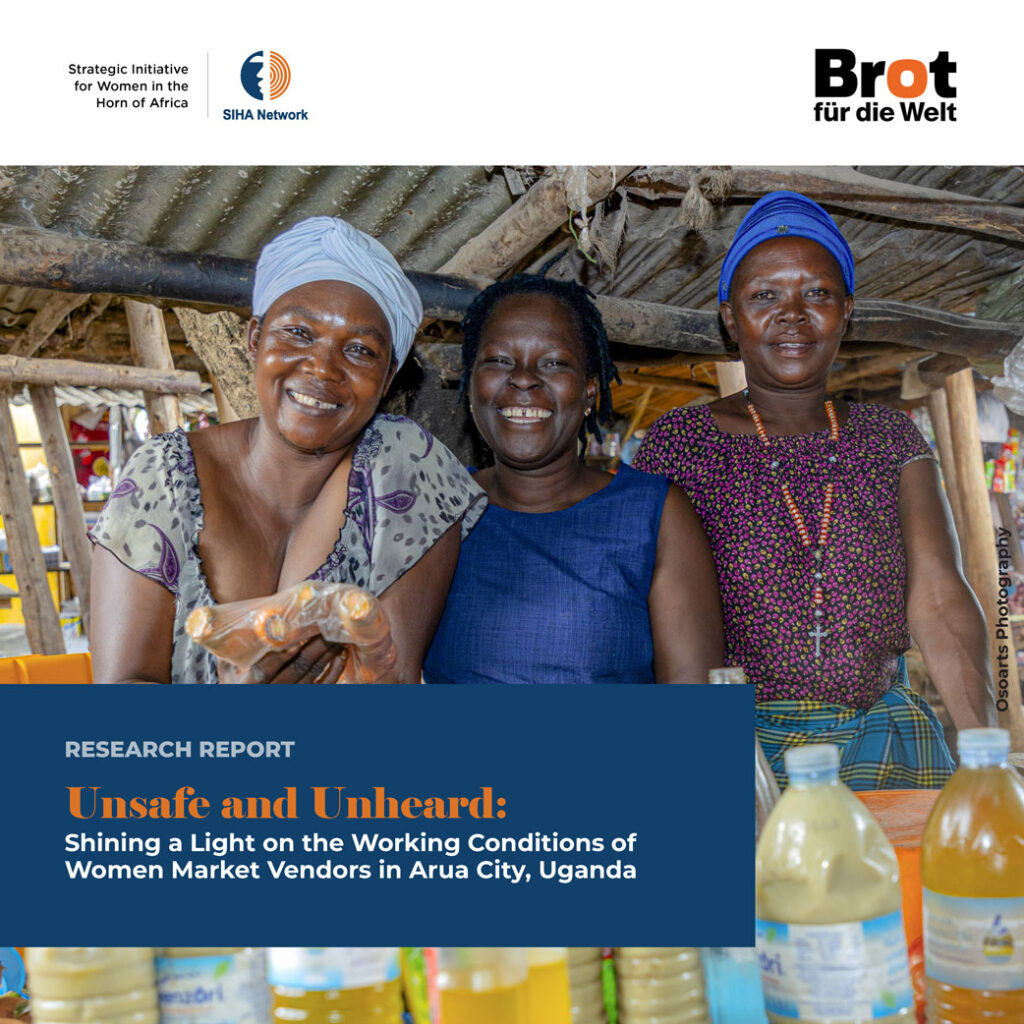
This study set out to generate evidence on the working conditions of women market vendors (WMVs) in Arua City, Uganda, aiming to inform policy, practice, and advocacy for safer and more inclusive market environments.
Findings reveal that conditions in most markets remain poor, with challenges stemming from weak policy implementation, limited rights awareness among vendors, inadequate facilities, and poor management systems by both city authorities and market leadership.
The report calls for localized and strengthened policies, effective enforcement of by-laws, and investment in market infrastructure that responds to the needs of all vendors, including persons with disabilities. It further recommends stronger leadership and conflict resolution mechanisms, alongside greater accountability from the City Council and other stakeholders.
By addressing these gaps, the study provides a robust foundation for evidence-based advocacy to transform Arua City markets into safer, more dignified, and inclusive workplaces for WMVs.
